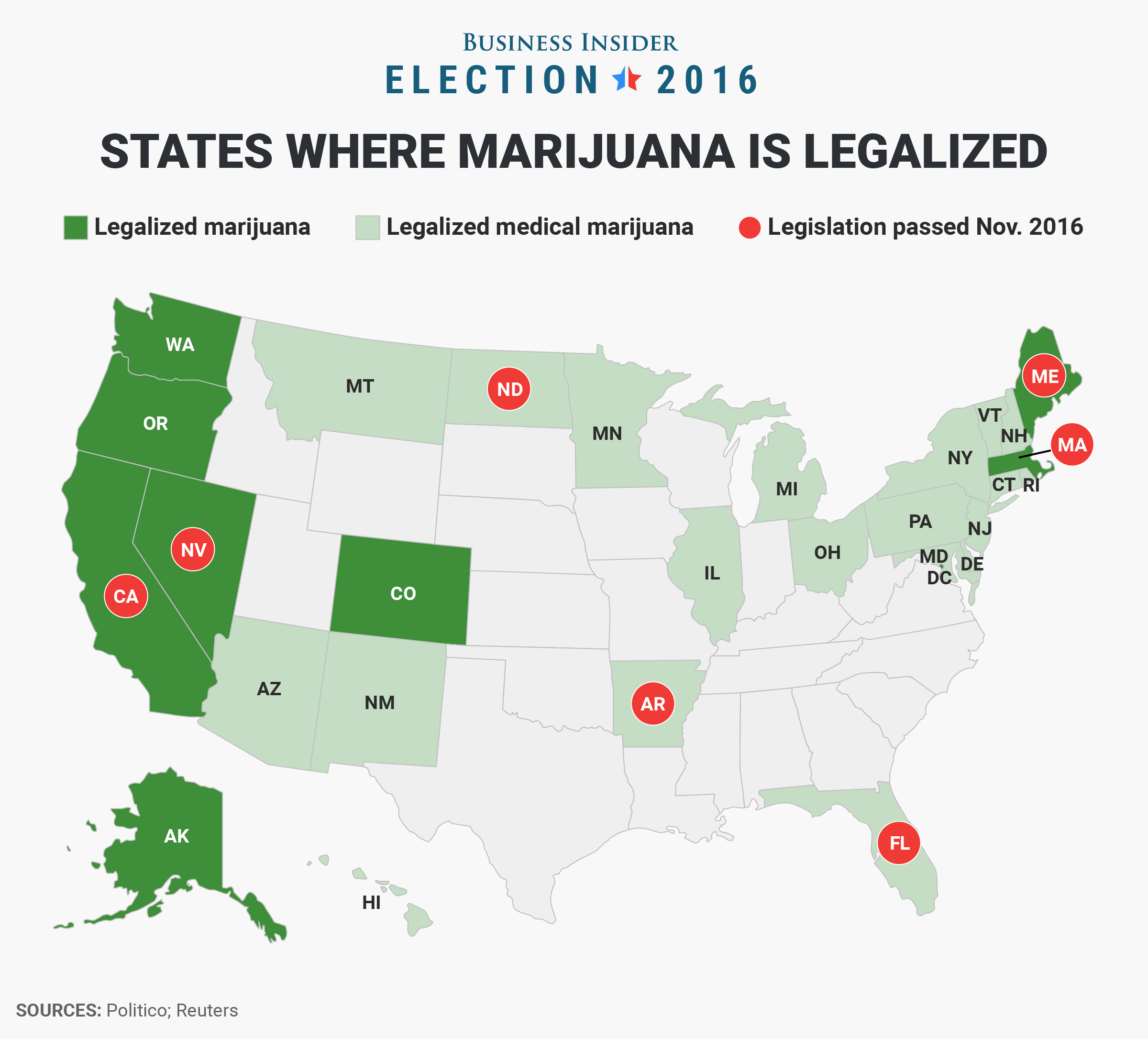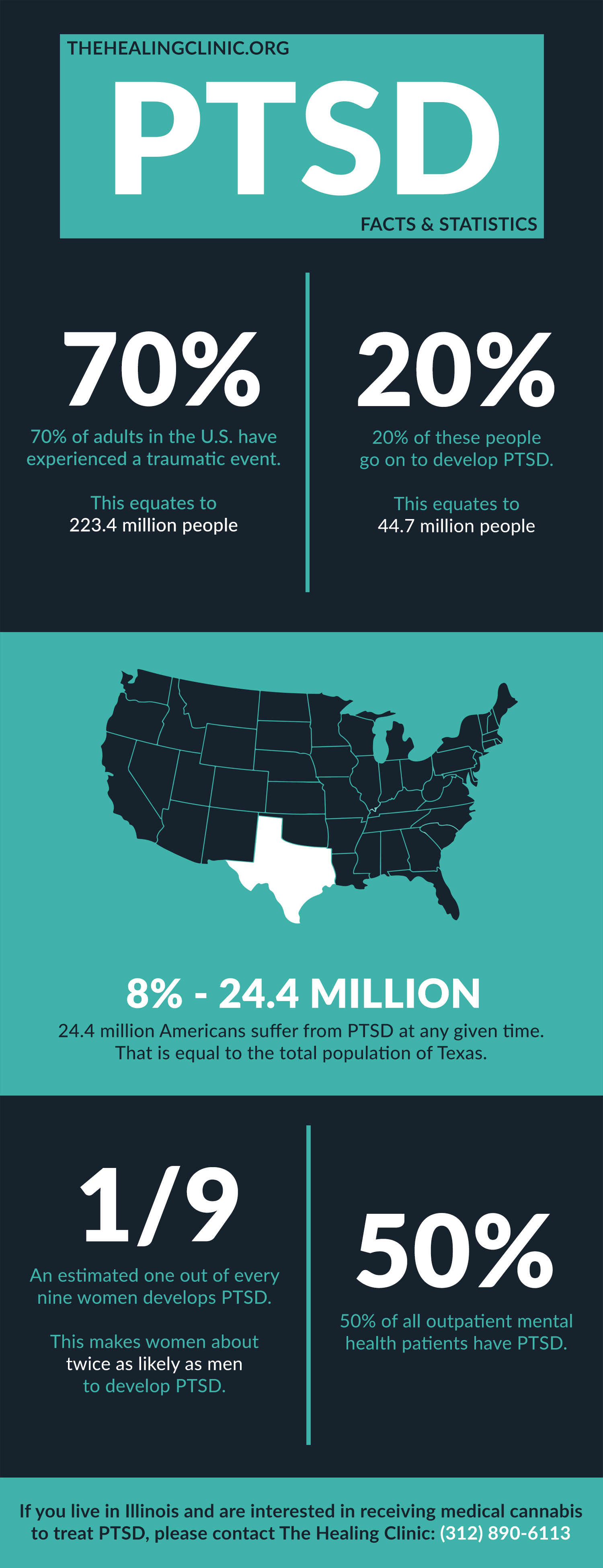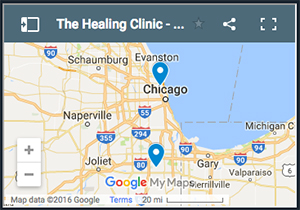The benefits of cannabis for PTSD | Infographic
The benefits of cannabis for PTSD. Post traumatic stress disorder, or PTSD as it is commonly referred, is a mental health issue that occurs after a traumatic event and lasts for many months or years. Such events may include serious accidents, military combat, violent personal assault (sexual assault, physical attack, abuse, robbery, mugging), being taken hostage, terrorist attack, being a prisoner-of-war, natural or man-made disasters, or being diagnosed with a life-threatening illness. Not everyone who has a traumatic experience will develop PTSD. Most will eventually move past the experience and not feel symptoms, but for those who do, we at The Healing Clinic believe that medical cannabis can effectively help.
Symptoms of PTSD
After experiencing or witnessing a traumatic event, symptoms of PTSD can begin to develop immediately or with a delayed reaction of up to 6 months. These symptoms include flashbacks and nightmares, the need to avoid social situations or places that remind you of the event, and hyper-vigillance. Further symptoms may include muscle aches and pains, diarrhoea, irregular heartbeats, insomnia, headaches, feelings of panic and fear, depression, or even drug and alcohol abuse.
PTSD Statistics
- 70% of U.S. adults have experienced a traumatic event, or 223.4 million people.
- 20% of these people go on to develop PTSD, or 44.7 million people.
- 24.4 million americans suffers from PTSD at any given time, which is roughly the population of Texas.
- 1 out of every 9 females will develop PTSD, making them twice as likely as men.
- 50% of all outpatient mental health patients have PTSD.
Neurobiology
People suffering from PTSD have a greater availability of endogenous cannabinoid type 1 receptors (CB1). CB1 receptors control the function of “forgetting” and are located in the central nervous system, and in the brain’s prefrontal cortex, hippocampus, and amygdala. THC (the main cannabinoid found in cannabis) acts as an agonist to these receptors, and when consumed will evoke cell signaling responses that lead to fear extinction learning.
How to consume cannabis
Cannabis can be consumed in many different forms, such as flower, wax, food, hash, oil, and tinctures and is administered by inhalation (smoking or vaporizing), ingestion, and topical application. Topical application is not recommended for those looking to relieve symptoms of PTSD as cannabis topicals will not induce the full effect of THC.
Cannabis legality
Currently, cannabis is illegal to use at the federal level, but don’t fret! Cannabis is completely legal at the state level in Washington, Oregon, California, Nevada, Colorado, Massachusetts, Maine and also in Washington D.C.. Medical cannabis is legal in Alaska, Arizona, New Mexico, Montana, North Dakota, Minnesota, Arkansas, Florida, Michigan, Ohio, Pennsylvania, Maryland, Delaware, New Jersey, New York, Vermont, New Hampshire, Connecticut, Rhode Island and Illinois.

Skye Gould/Business Insider
The Healing Clinic
The Healing Clinic is a medical cannabis advocacy center that provides Illinois residents suffering from PTSD, and all other eligible conditions, access to medical cannabis. We speed up the process by providing a doctor, submitting all paperwork to the state, and designating a dispensary near your home. It’s so easy to request an appointment. Or, just give us a call at 1(312) 890-6113. We look forward to helping you treat your condition.

Embed this infographic on your site or blog
Sources: PTSD United, RC Psych, US Department of Veterans Affairs, SC Labs




